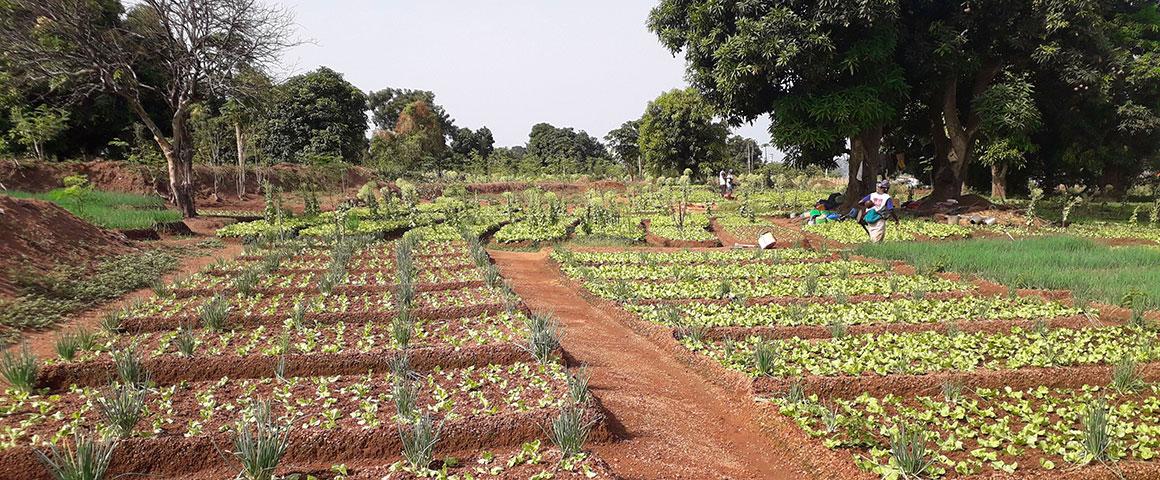- Home
- About us
- Research units
- HORTSYS
Agroecological Functioning and Performances of Horticultural Systems - UPR HORTSYS

Urban market garden in Bouaké, Côte d'Ivoire © T. Martin, CIRAD
Its research centres on the agroecology of horticultural systems and on supporting their ecological intensification. It aims to build:
- our knowledge of the most promising agroecological processes (in particular soil remediation, push-pull mechanisms, physical barriers and the physiological functioning of plants and food webs within agro-ecosystems);
- a global participatory approach: eco-design, on various levels (cropping systems, production systems, territories and supply chains), which means conducting multi-criteria and multi-scale assessments, notably within the framework of life cycle assessments (LCAs).
























